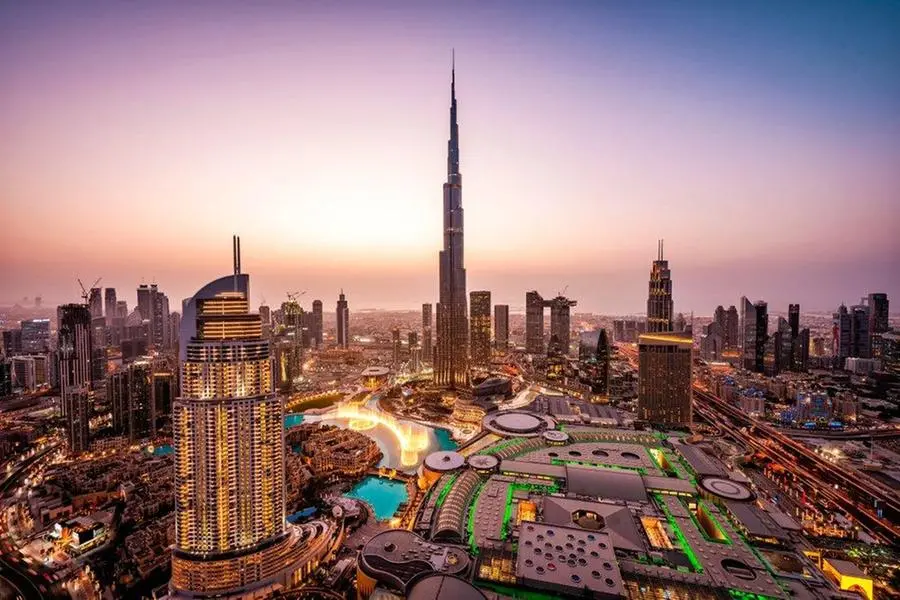PHOTO
The UAE insurance market is projected to grow by Dh14 billion by 2028, driven by the non-life segment, according to a new study published on Wednesday.
Released by investment banking advisory firm Alpen Capital, the study said the UAE insurance sector will expand at a compound annual growth rate (CAGR) of 4.9 per cent from $14.1 billion (Dh51.7 billion) in 2023 to $17.9 billion (Dh65.7 billion) in 2028.
The study projected that the non-life segment is estimated to grow at a CAGR of 5.2 per cent to $14.4 billion in 2028.
“This growth is expected to be driven by improving macro-economic conditions, expansion of mandatory health insurance cover to the Northern Emirates coupled with the development of large-scale infrastructure projects,” Alpen Capital analysts said.
Over the next two years, the UAE has an infrastructure project pipeline worth $29 billion, which is expected to amount to $199 billion over the next five years.
Additionally, a large pipeline of transportation and road infrastructure projects, such as the $11 billion Etihad Rail, $5.9 billion hyperloop project, and $2.7 billion Sheikh Zayed double-deck road project is expected to boost economic growth, it added.
The implementation of the Unemployment Insurance Scheme in the UAE, with over 6.7 million residents enrolled by November 2023, is expected to attract more workers and contribute to the growth of the non-life insurance sector. “As a result, non-life gross written premium in the UAE is expected to be one of the largest contributors of the total non-life GWP in the GCC with a 36.3 per cent share by 2028,” it said.
GCC performance
Alpen Capital said the GCC insurance market is expected to grow by $10 billion by 2028, driven by resilient economic growth, sustained increase in population, rising need for health and life insurance, and infrastructure development projects.
The regional insurance sector is expected to expand at a 5.3 per cent compound annual growth rate (CAGR) from $34.3 billion (Dh126 billion) in 2023 to $44.4 billion in 2028.
It is estimated that the GCC’s planned or underway real estate projects valued at $1.6 trillion in 2022, are likely to support insurance demand and enhance the region’s insurable assets.
“Furthermore, governments’ efforts in strengthening regulations, along with the implementation and development of mandatory insurance schemes, and increase in the M&A activity across the GCC are expected to improve near-term premium growth. For instance, in the UAE, ongoing collaboration between the government and the insurance sector has led to the development of mandatory insurance products, providing opportunities for insurers in the market,” said Alpen Capital analysts.
The demand for insurance in various sectors such as property, vehicles, and health is expected to continue to increase due to increasing population at a CAGR of 2.0 per cent between 2023 and 2028.
Additionally, factors like tax incentives on insurance products and an upward trend in life expectancy are likely to aid the growth of the insurance industry149.
The demand for insurance protection has grown post-pandemic, due to the implementation of regulatory initiatives in the GCC region, such as the introduction of unemployment insurance. Signs of economic improvement within the GCC nations have improved confidence in insurers, leading them to enhance their risk management practices and reorganize their insurance programs.
The regional insurance industry remains highly competitive, with a mix of international and national insurers, which will constrain future price increases.
The non-life insurance sector is expected to grow at a CAGR of 5.4 per cent, rising from $30.4 billion in 2023 to $39.6 billion in 2028 and comprising 89.2 per cent of the total insurance market by 2028.
Copyright © 2022 Khaleej Times. All Rights Reserved. Provided by SyndiGate Media Inc. (Syndigate.info).





















